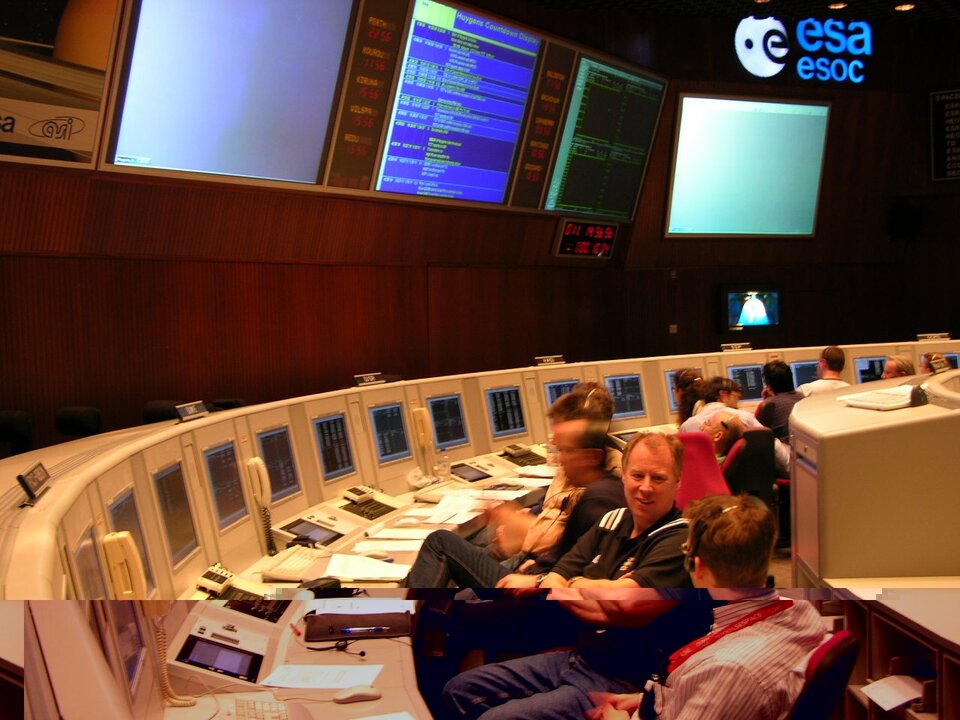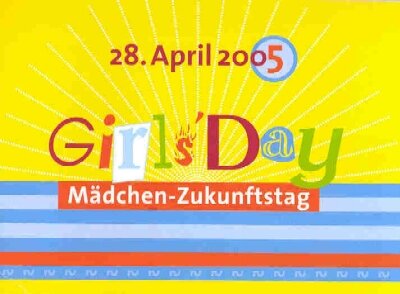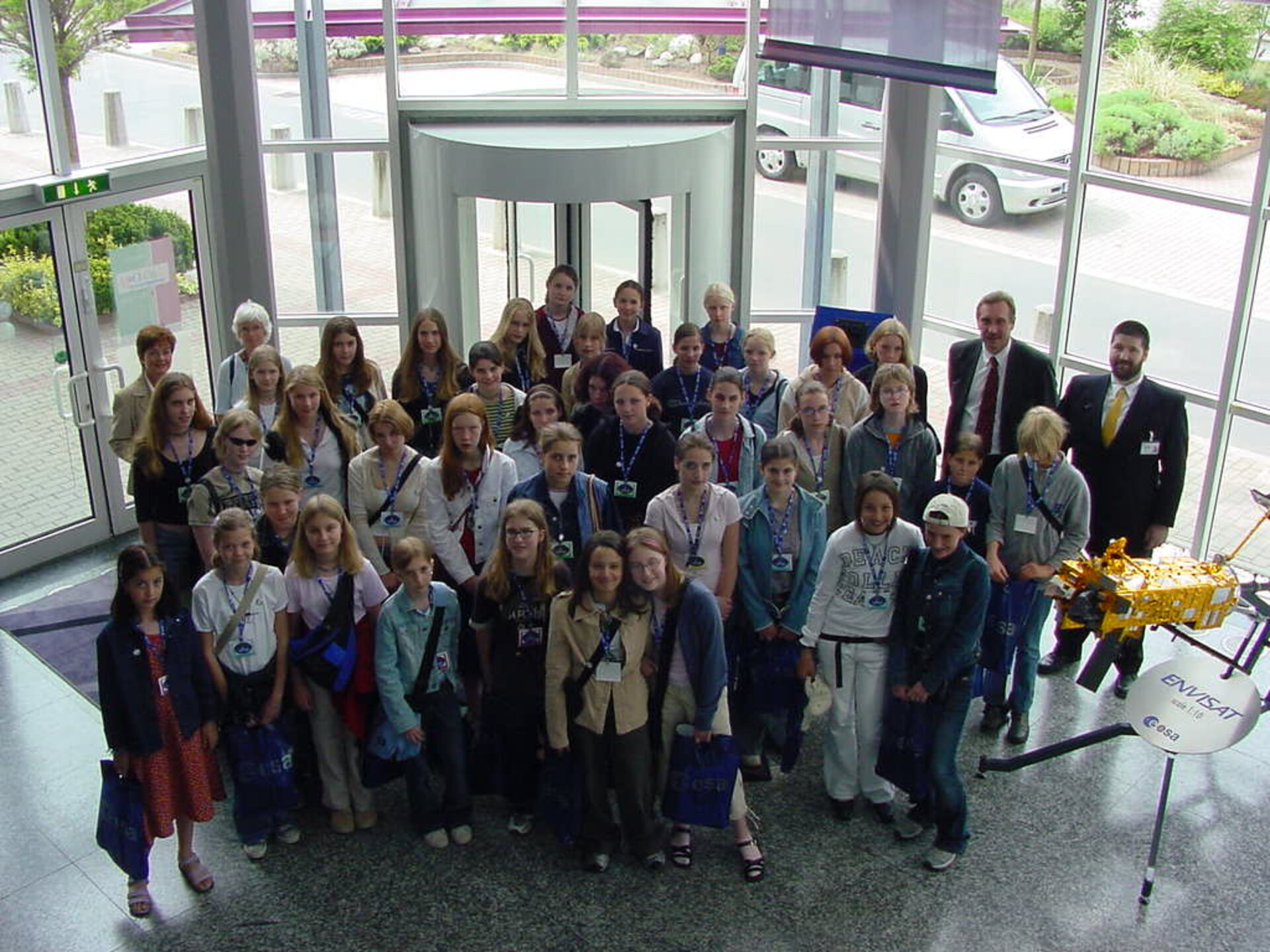Girl's Day grows with ESA support
Female students will be asked to design a workable ground segment, the heart of any mission control system, when they visit ESOC on 28 April 2005. The challenge, aimed at stimulating future scientists and engineers, is part of the activities taking place within ESA to celebrate Girl's Day.
A group of 44 keen female students will gather at ESA's Space Operations Centre (ESOC), in Darmstadt, Germany, later this month to take part in a special Girl's Day programme designed to inspire interest in future careers as space scientists and engineers. This is the third year that ESOC will host the event and underlines ESA's strong commitment to promoting space activity in Europe and the full participation of women in technical, engineering and management positions throughout the agency.
ESOC's 28 April event is aimed at female students 14-16 years old and will start with a welcoming session lead by senior operations and human resources managers. The girls will then be split into two groups for tours of the satellite control facilities, including the Main Control Room and computing centres, and will attend separate workshops on "Space in the Internet" and "Traces of ET on Mars" conducted by ESOC engineers working in these areas.
Challenge: design a workable ground segment

The day's highlight will be a small-team challenge activity to design a practicable ground segment based on ESA's real mission control systems, which the girls will have seen or learned of beforehand.
The exercise was newly designed for this year's Girl's day event and will test participants' ability to integrate what they see and learn onsite with what they imagine is required to actually support a typical ESA space science or Earth observation mission. The idea is to encourage girls to think not only critically but also imaginatively.
"Stimulating imagination is very important. We wish to give the girls something they can bring back to their schools and share with other students," said Dr Roberta Mugellesi Dow, a mathematical analyst in the Testing, Systems and Observatory Support Section at ESOC and co-organiser of the ground segment challenge activity.
After the small teams present their ground segment projects for critical assessment by ESOC experts, the girls will participate in a Q&A open forum hosted by a team of female staff members drawn from all areas of ESOC professional activity. The day will end with a relaxed buffet lunch and an opportunity to visit ESOC's Space Shop.
Girl's Day grows with ESA support
The ESOC Girl's Day event started several years ago as a human resources activity but has since grown to include support and input from the ESA Education Department and is now coordinated with ESA's Astronaut Centre (ESA/EAC) in Cologne, Germany. "Even today, when we run recruiting events at German universities, we typically see only about 8% female students in the audience, which is quite low. We want to boost this and let girls of high school age know these professions are not only for boys," says Dr Frank Danesy, ESOC's human resources head.
Girl's Day is an effective way to reach and motivate a traditionally under-represented group in science and engineering, and ESA is at the forefront of European organisations helping expand the concept to other countries. Girl's Day at ESA is not confined to ESOC and the EAC; the European Space Research and Technology Centre (ESTEC) in Noordwijk, The Netherlands, will also host an event which, with 120 girls registered from local Dutch schools, is already oversubscribed, indicating the strong cross-border interest in Girl's Day. The ESTEC programme includes visits to laboratories, sessions with space science experts and the opportunity to meet and talk with Dutch ESA-Astronaut Andre Kuipers.
Girl's Day activities will also take place elsewhere in Holland and in Switzerland, Luxembourg and Austria.
Girl's Day genesis

Based on over 20 years of pilot projects and campaigns, Girl's Day has evolved into a national event in Germany aimed at promoting work and professional opportunities for girls particularly in areas traditionally under-represented by women such as engineering, technology and management. Girl's day events are conducted at hundreds of companies, schools, institutions and economic and labour organizations and the day is gaining support in countries other than The Netherlands and Germany.
Girl's Day is supported by the EU, Germany's education and family ministries and by several national agencies including the Federation of German Industries (BDI) and the Association of German Chambers of Industry and Commerce (DIHK).




